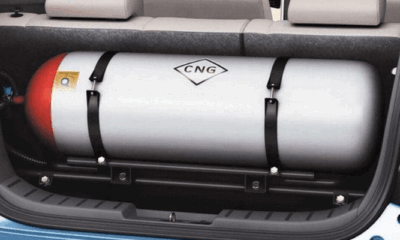By Enyi Ominyi
An unexpected protest by Nigerian petrol marketers over alleged dirty, high-sulphur fuel imported by the state-owned oil company, the Nigerian National Petrol Corporation, NNPC has triggered long queues in petrol stations across the country.
Motorists who drove out early Tuesday morning hoping to refill their tanks met empty pumps and barricaded stations, leading to anger and frustrations as transporters hiked fares.
The NNPC, the sole importer of petrol in the country, has allegedly imported high-sulphur petrol and marketers who received the allocation have received instruction from their union not to distribute it. The result is the overnight scarcity that has upended plans and will lead to massive disruption in business activities across the country.
NNPC has yet to respond officially to the allegations. Neither has the Department of Petroleum Resources, DPR an arm of the Nigerian state oil company responsible for regulation and compliance in Nigeria’s petroleum sector.
The long road to clean fuel
Nigeria attempted to cut the import of high-sulphur fuel for the first time in 2019 as part of a United Nations Environmental Programme (UNEP) campaign by lowering the high level of sulphur in diesel to 50 parts per million (ppm), from 3,000 ppm and to 300 ppm from 1,000 ppm in PMS.
However, with the unfolding event, it does appear that the Nigerian government could no longer afford the cost of quality, clean fuel as the cash-strapped federal government struggles to meet the mounting cost of monthly subsidy payments for petrol.
Even though Nigeria exports up to 2m barrels a day of high quality, low sulphur “Bonny Light” crude from the Niger delta, international dealers export to Nigeria around one million tonnes a year of low-grade, “dirty” fuel, made in Dutch, Belgian and other European refineries, and hundreds of small-scale artisanal refineries produce large quantities of illegal fuel from oil stolen from the network of oil pipelines that criss-cross the Niger delta, according to a report by the Guardian.
Nigerians had hoped that a long-awaited reform through a new petroleum industry law would address some of these challenges. The passing of the law by the legislature and its assent by President Muhammadu Buhari was heralded as a new dawn for the industry. Unfortunately, the implementation of the new law was suddenly suspended as it could have led to the end of the subsidy regime, a politically inexpedient solution that would have led to unmitigated consequences for the ruling All Progressives Congress ahead of general elections in less than eighteen months.
For now, Nigerians must grapple with low-grade, dirty fuel as the government battles massive debts which IMF projects will gulp 92 per cent of revenue for services. This has made premium petrol a luxury that the government cannot continue to pay for despite the health and environmental consequences of the subsisting choice.

 Education4 weeks ago
Education4 weeks ago
 News3 weeks ago
News3 weeks ago
 Business3 weeks ago
Business3 weeks ago
 Technology3 weeks ago
Technology3 weeks ago
 Investment4 weeks ago
Investment4 weeks ago
 Investment3 weeks ago
Investment3 weeks ago
 Telecommunications4 weeks ago
Telecommunications4 weeks ago
 Banking Sector3 weeks ago
Banking Sector3 weeks ago




























